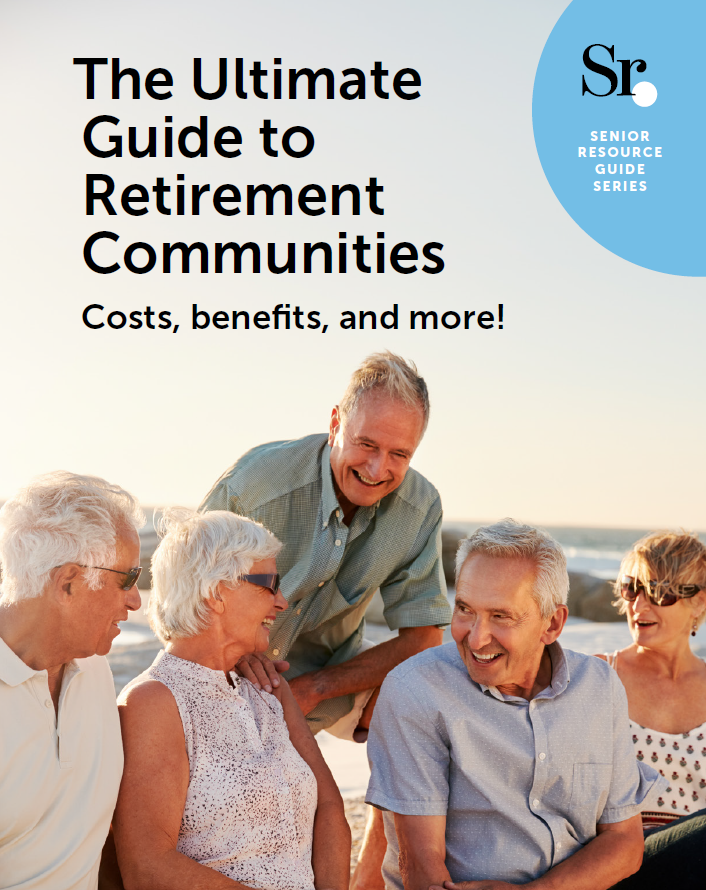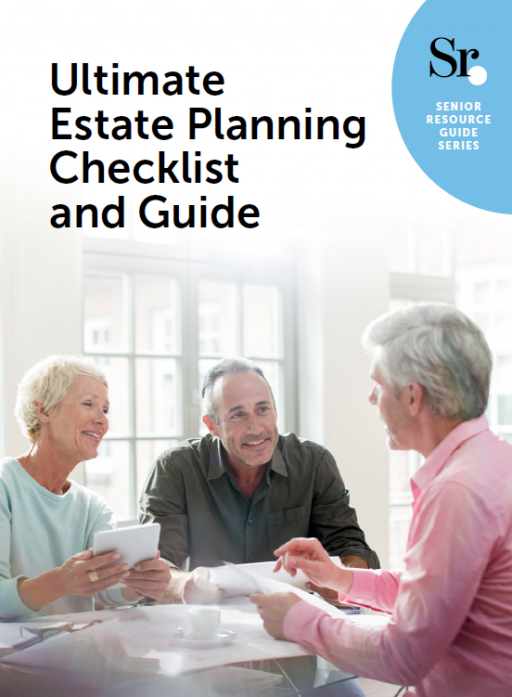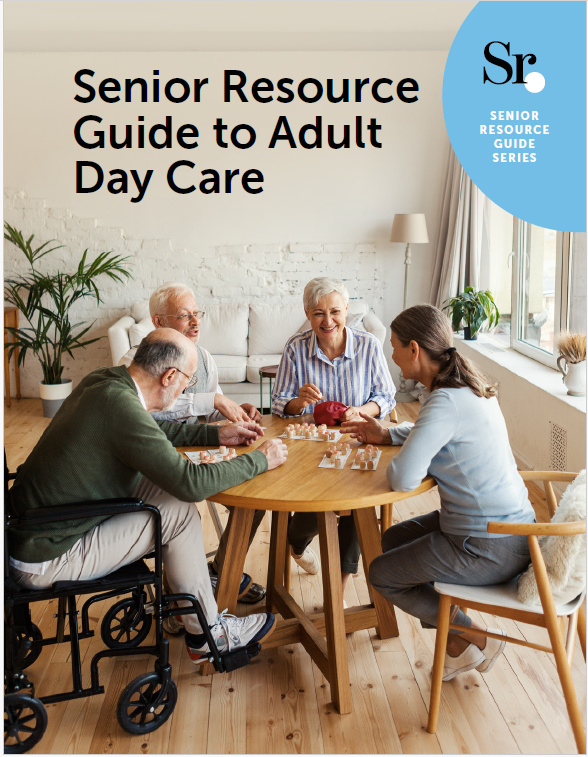home care (Page 6 of 49)
Need Help Choosing a Home Care Agency?
Finding the right home healthcare agency can be a daunting task. Use these questions to help narrow your search!
Hospice Care: Frequently Asked Questions
Answers to all the commonly asked questions about hospice care.
8 Tips for Hiring the Best Cleaning or Housekeeping Services for Seniors Aging in Place
Most seniors want to age in their own homes, but many will need a little help!
Tips to Facilitate a Senior Home Sale, Part 4
Suzanne is joined by Rebecca Bomann, CEO and founder of SASH Services (Sell a Senior Home), to talk about how to best facilitate a home sale with a loved one who is there with Alzheimer’s or dementia. Previous segments have talked about the journey leading up to mom or dad leaving, not trying to pack up the home while they’re still living there, finding a good place for them to move, and having the legal paperwork in order, as well as surrounding yourself with experienced professionals.
Rebecca says now it’s time for you as the caregiver to delegate the home sale. “The important thing is not to bite off more than you can chew as far as getting the home ready for market. Your first and most important job, that really no one else can do as well as you, is being that power of attorney and caregiver for your loved one. Other people can work on the house, and you don’t necessarily have to have the house be like HGTV in order to sell it. If it’s clean, if it’s empty, if there’s not major repairs to be done, it’s okay if you have pink tile in the bathroom, it’s okay if you have avocado counters in the kitchen, it’s okay if you have a shag rug in the family room. The house will still sell. Save your energy and strength, because you need it for the long haul of being the caregiver and power of attorney.
“We love saying to the family, we’ve got the house sale. We’ll take it from here. So we come in, and we bring in experienced professional downsizers who can sort through all of the things in the home, set aside those sentimental things like photos, and letters, and photo albums, and yearbooks, and wedding dresses, itemize the things that can be monetized to help pay for mom or dad’s care, and empty out the home. Then, we’re a licensed general contractor, so we can come in and do some light updates, or repairs, or a big renovation to help the home sell for top value. Once again, we’re not doing this with the help of the son or daughter. We don’t want them to have to take that on — we’re doing this for them. They can be in another state, another country — they’ve delegated this to us.
“Because SASH was designed to be a service that specifically takes care of the needs of seniors and their families, we started providing cash advances over a decade ago. And so we give the family a cash advance on the future net proceeds of mom or dad’s home sale, sometimes $10,000, $45,000, up to $75,000, and even more. It doesn’t require any credit check. We arrange for it, so it’s not coming up on anyone’s credit, and we want to provide that solution so they can just focus on their role as caregiver for mom or dad, and then hand the home sale over to us. So I always say, build a team of professionals around you who know what they’re doing.
“Moving is a huge mental and emotional adjustment for your loved one, and you’re best served being there for them, not to be out painting walls. One of the things that I always tell caregivers is, “Sometimes you just have to sit down and breathe, take care of yourself,”
Learn more at SASH Services or call 888-400-7274. Also check out SASH’s resources at AFE’s website.
Tips to Facilitate a Senior Home Sale, Part 2
Suzanne is joined by Rebecca Bomann, CEO and founder of SASH Services, to provide encouragement, guidance, and tips for families selling the senior home of a loved one.
First: get your legal paperwork in order. Rebecca says, “We can’t emphasize it enough. People do not want to have these conversations, because it means that there’s gonna come a time when you’re very competent, bright, active, athletic, very sharp mom or dad can’t make decisions for themselves anymore. Nobody wants to imagine that possibility. But when families don’t get those documents in place, then they get caught in crises where somebody needs to be making the decisions and no one has the authority to do so.
“I’m working with a family right now where the son lives out of state. Mom was declining, he had her power of attorney ready, he sent it to me in an email. We got it recorded with the county. He was able to sign papers for his mom two days later to get her house sold. There was no scramble, there was no stress, and we were able to begin and get funds in for her care immediately. Contrast that with another client I took care of this year, where there wasn’t a power of attorney. His wife is on the house’s title, but she never signed a power of attorney over to her husband, and now had dementia. He couldn’t sell his home because no one could sign for her, and he had to go through three months of a legal conservatorship through the court just to sell his own home. So, that’s the difference between having those papers prepared and not.”
Second: “If mom or Dad are going to be in the home while the house is getting ready for sale, choose professionals to come in and help your family through this journey who are experienced and understand the delicacy of talking to someone who has advancing dementia or Alzheimer’s. You don’t want someone just barreling in, just because they have a real estate license, and talking about things that are going to cause anxiety and send the person with dementia into a disorientation, into an emotional tailspin, confusing them. This needs a very delicate touch, and it requires experience, empathy, and knowing how to navigate around those big decisions while mom or dad are there, and how to take the important things out of earshot or out of sight. I helped a couple recently, and I knew that she would forget who I was after our visit. I’d visit again and talk to her husband, and she would introduce herself to me over and over on each successive visit, even though we saw each other 30 or 40 times over the course of a few months. I just gently said hello, it’s great to see you. How is your day going? I just smiled, brought a smile to her face. I didn’t try to make her remember me. I’m just there to help her feel comfortable and at ease.
“For families that are choosing a real estate agent, vet them offsite first. Meet at a Starbucks or a local restaurant, have coffee, talk to them, ask them what is your philosophy of caring for people who have Alzheimer’s or dementia. Find out how they talk about it, see how their inner-personal skills are, before bringing them into the home where mom or dad is, and see you know how they act around those topics. Also, ask about their experience, how many times have they been involved with a situation like this, and find out if they’re experienced. Other elder care providers might be able to give a reference to the real estate agent that is sensitive to that.”
Learn more at SASH Services or call 888-400-7274. Also check out SASH’s resources at AFE’s website.
Tips to Facilitate a Senior Home Sale, Part 3
Suzanne is joined by Rebecca Bomann, CEO and founder of SASH Services (Sell a Senior Home), to talk about how to best facilitate a home sale with a loved one who is there with Alzheimer’s or dementia.
Rebecca says,“Don’t start packing up the house and putting things in boxes while mom or dad is still living there. Give them the comfort of the familiarity of their own home the way they’ve always loved it. Avoid having them sitting with confusion, disorientation, and anxiety. Over and over again, they’ll have trauma and shock: what is happening to my home? Let it remain the safe, comfortable, and familiar place.”
Rebecca shares stories from a good move and a bad move. “We just were assisting a family. Mom has early onset Alzheimer’s, and they found a place for her that is run by caregivers who actually speak her language. English isn’t her first language. They’re serving food that she grew up with, and they even speak the same dialect of the same language. Her family took a lot of care, they interviewed, they toured, they took their time. They were looking at a lot of different places, and they found a place where it is comfortable for mom. That was a well-done placement.
“We are also helping another family where mom has dementia. The power of attorney went to a place, but didn’t vet it properly. Mom wasn’t examined properly. A lot of quick decisions were made. It was just assisted living. Her first night there, she walked out the front door and walked ten blocks by herself before she was finally found and picked up. It could have been disastrous, and the family had to hurry up and find the right kind of place for her. It was a second move, really disruptive, and traumatic for Mom.”
“Work instead on finding that new place for mom and dad, and the placement of where to find that place for mom and dad to live is so important. You want to really take the time to do that well. Find the right place for them to move into, and then bring those familiar things over, and decorate their new place with it. Let their familiar surroundings follow them. Bring the photos, and the favorite quilt, and the favorite armchair, and the American flag that sits over there, their entertainment center, and get all of that set up.
“I even had one client whose furniture was covered with gray tape. She was so frugal that she gray-taped her furniture. And when I moved her, she brought all of her gray-taped furniture with her. That was what was most familiar, and I wasn’t going to object. So let them bring the things that are familiar, and worn, and loved, and comforting, and really take the time to make sure the placement is appropriate for their care needs and their financial needs.”
Learn more at SASH Services or call 888-400-7274. Also check out SASH’s resources at AFE’s website.
Tips to Facilitate a Senior Home Sale, Part 1
Suzanne is joined by Rebecca Bomann, CEO and founder of SASH Services (Sell a Senior Home), to provide tips, guidance, and encouragement for families that may have a concern about the care of a senior loved one who has progressive dementia or Alzheimer’s and can no longer take care of themselves anymore. Their home is usually their biggest asset to pay for round-the-clock care that mom or dad needs.
Families find themselves in an intense situation. The caregiver has to manage mom’s finances, mom’s care — where is she going to move to? What level of care does she need? Doctor’s appointments? And we’ve got this home that she’s lived in for 50 years, it’s full, it hasn’t been ready for market. How in the world are we gonna do this?
Rebecca says, “I’m working with a family right now where their loved one has dementia and it’s $15,000 a month for around-the-clock care in their home. That is a lot of money. Even if you own your home outright, with that expense you can burn through all the equity in your home in just a couple of years. Financially, it doesn’t make sense to stay at home. And then there’s the safety element: The stove is left on, the doors are left open or unlocked, there’s electrical hazards, there’s fall risks. And family members are going and checking on mom every day, and they’re starting to be so frazzled because of the stress of knowing that mom or dad is in an unsafe environment, and they have just reached that point where it’s time to get mom or dad into a place of care. And, well, we’re gonna have to sell the home to pay for it. And this is where they call us.
“We’ve got lots of tips and guidelines that we can get into in our next segment, and we just want to be here for you, give you valuable information, support, and this is all based on my years of experience of doing this day in and day out.”
Learn more at SASH Services or call 888-400-7274. Also check out SASH’s resources at AFE’s website.
Advances in Alzheimer’s Research
Suzanne is joined by Dr. Paul Winner, the Senior Director of the Premiere Research Institute and Attending Neurologist at Palm Beach Neurology in West Palm Beach, Florida, to talk about advances in Alzheimer’s research.
Dr. Winner says, “There’s definitely a lot of optimism for patients with Alzheimer’s. We’ve started to understand this disease a little better. We understand a lot more about amyloid, its toxic form, about tau, how it progresses, how there’s nerve damage. These are all targets, these are all options to stop them. So our targeted research is to try to remove the toxic amyloid, to prevent its formation, to uncouple it, make it easier to be removed. There are basically plaques and tangles, amyloid and tau. Also to address the glial cell for inflammation. These are all targets — these are all options, and all of these are being tested right now, and there is definitely optimism in several of them. Some we feel we’ll have some FDA approved medicines, possibly in 2023, definitely within the next two or three years.
“We we try to be very positive, but we do have to be a little careful. We do not have the ability today to stop Alzheimer’s dementia. Let’s make that clear. We do not have a cure. That’s okay, we’re working to that. But we can slow the progression of the illness. And we have shown we were able to remove amyloid. It takes 15 to about 22 years for the amyloid to be deposited. During all that time, it’s causing trouble, damage, inflammation, cell death, production of tau. You want to get there even before patients have clinical symptoms. How in the world could we do that?
“Well, we have bio-markers now — we can tell if someone has positive amyloid, positive tau, positive nerve damage, even though it’s not really affecting their life yet. So we can do that today, and those studies are ongoing, we are doing it now, I have patients under treatment. Then there’s people who have mild cognitive impairment who come in voluntarily: They’re starting to forget things. They’ve got to make lists to go to the grocery store, they’re forgetting names, which they never did before. Or they need directions, they need someone else to help them in the car to drive, they need someone else to help them with the checkbook, because they’re making too many mistakes. This is where we can slow down the deposition of amyloid in the brain — that’s been done. In fact, there’s already a medicine, aducanumab, that’s FDA approved, but there are a lot of issues around it, and it’s only used still in research primarily.
“But two others have shown very significant promise recently in Phase 2 studies. The clinical relevance is still being determined and it doesn’t happen right away. It takes about six months to a year plus to remove amyloid to about a 60 to 70+ percent, and it takes about 18 months for us to really see what I’ve just observed, but this is significantly positive. The medicine does what it’s supposed to do. It removes the amyloid, and you had less of a decline in the group that was on this active medicine.
“There’re many other advances in Alzheimer’s research. We’re looking at anti inflammatory-type medicines, neuro-protective type medicines. Those are a little bit in their earlier studies, but we do have some promise.”
Learn more about the Athira Pharma Alzheimer’s LIFT-AD research study, Interested in learning more? Contact Premiere Research Institute at (561) 296-3838, contact Dr Winner at (561) 851-9400 or learn more about him here. This podcast is courtesy of Athira Pharma.
Lifestyle Changes to Avoid Dementia
Suzanne is joined by Dr. Paul Winner, the Senior Director of the Premiere Research Institute and Attending Neurologist at Palm Beach Neurology in West Palm Beach, Florida. Dr. Winner addresses various lifestyle changes to help avoid developing dementia. He says, “There are risk actors. You want to avoid this as best you can. You don’t want this to happen, even if you’re predisposed genetically to develop it. There are some things you can do to help yourself now. Controlling your blood pressure and exercising are the two single best things you can do outside of getting your hearing checked:
* Have your hearing checked. It’s so easy to find out if you have a hearing deficit and to correct it today with hearing aids. That goes a long way.
* Correct your vision. If you have visual impairments, you want the best input into your brain so it can function as best it can.
If you’ve got metabolic syndrome, get it under control. If you have diabetes, control it as best as you can. Check your blood pressure. Studies have shown — the Sprint Mind study showed that controlling blood pressure clearly reduced the development of dementias. You want your blood pressure at 120 over 70 or less. Now obviously, if you’re symptomatic with a low blood pressure, you can’t do that, but most patients can, and you want to do that as soon as you possibly can.
* Overweight obesity is another risk factor. Do your best to avoid certain foods. Diet is important. You don’t want to wait till you have the symptoms — you want to get in front of it as best you possibly can. There are many medical and non-medical organizations that can give you some ideas about diet. Diet is complex. There are there’s a Dash diet, there’s a finger diet, there’s the Mediterranean diet. The diet that you can handle, that you can do, is the right one for you. There are some that statistically seem a little bit better. The Mediterranean diet’s pretty simple.
* Alcohol consumption, basically none is the best, but if you’re going to use it, it needs to be small quantities. The exact quantities are not clear. Remember, what do we use alcohol for in a clinical practice? We use it to clean off our tables, to kill viruses and bacteria. It is a caustic substance.
* Head trauma — please don’t do things that will ultimately result in you having a head injury, especially after the age of 40. If you’re predisposed to develop that toxic amyloid genetically, and you hit your head, you’re gonna accelerate that process. Do not go fix the roof if you’re 40 or 50. Hire someone to do that. I can’t tell you how many patients I have taken care of that have fallen off ladders when they were fixing gutters or the roof. Get someone to do that for you, if at all possible. Wear a helmet when riding a bicycle. If you’ve got problems with balance, use a stationary bike inside a protected area. I lost a good friend because, unfortunately, he had an injury that resulted in a subdural that clearly could have been prevented, and he’s not with us anymore. It accelerated the dementia aggressively, and within a matter of years he was no longer alive.”
if somebody wants to get tested how do they get tested? Dr. Winner explains, “I don’t want to be too optimistic here, because we’re still doing the research and this is early data, but we have medications that are clinically functioning and look very positive. We need to get the diagnosis correct, which means just getting a simple evaluation of a person’s history and a physical exam is not enough anymore. You need a neuro-behavioral test, administered by people who are very good at doing this, for a basic assessment. Then you’re gonna have to get into much more detail medically to actually get the diagnosis right, because, essentially, Alzheimer’s is about 60 to 70 percent of the dementias. Vascular dementia could be another 20 percent. They can coexist — in fact, the majority of them are mixed, but there is a predominant version on top of that. So you need to go to a center who’s familiar with that. And everything is changing very quickly. We should have FDA-approved medications very soon, we have one right now that is disease modifying.”
Learn more about the Athira Pharma Alzheimer’s LIFT-AD research study, Interested in learning more? Contact Premiere Research Institute at (561) 296-3838, contact Dr Winner at (561) 851-9400 or learn more about him here. This podcast is courtesy of Athira Pharma.
Test Procedures for Dementia
Suzanne is joined by Dr. Paul Winner, the Senior Director of the Premiere Research Institute and Attending Neurologist at Palm Beach Neurology in West Palm Beach, Florida.
When family members see that mom may be fine, but maybe Dad starts to have some memory issues. How do you start the process of having the conversation to get them tested? Dr. Winner says, “I think you want to let people know that we have very good diagnostic methods today. We can actually determine what it is. It could be something simple. So you need to go to a center, essentially a memory disorder center. If you really have a problem, something that’s essentially now affecting the family, that’s no longer, “I’m worried if I have a little bit of an issue with my memory,” then you have to go to a memory disorder center. They need to get to a place that can do 1) a very, very good history and 2) a very good physical exam, and they’re looking at domains of how the brain works. A good history can determine how long it’s been that there’s been memory issues. What was the initial problem? Was it a short term memory issue, was it an immediate memory issue, was it a behavior issue? Was it a movement problem? What is it? Because there’s all different kinds of dementias, or maybe it’s something else. A medication got changed a year ago and that’s when this all started. So there are some simpler problems. There’s thyroid conditions in the family and their medicine got changed. There’s a lot of different variables. So a very good history, a very good physical exam. You need to do laboratory studies, basic laboratory studies, to make sure there is not a problem with thyroid. There isn’t a B12 deficiency. There isn’t an autoimmune or infectious process. This is not expensive and not hard to do.
What happens next? Dr. Winner explains, “Next is a nerve behavioral test. You need proper testing on what is going on with the brain. Is the aspect that’s wrong? Is it memory? Is an executive function? Is it processing speed? All the different aspects, attention problems, is there a non-functional area or multiple areas? This gives you a clue right away of what you’re dealing with. Then you need a picture of the brain. You need to make sure there’s not another explanation, or maybe there’s a mix, there could be two dementias. Sometimes a brain tumor caused this. Sometimes it’s a meningioma with edema, and we can treat that, and they’re all better pretty quickly.
“Then let’s say we go through that and it’s suggestive of Alzheimer’s dementia. Well, you can make a clinical diagnosis, but you’re not going to be right a lot of the time. You need to go to the next level. The next level is bio markers. We have serum bio markers, but essentially the gold study we should do is to use a PET scan, an amyloid PET scan, and/or add to that a tau pet scan. Two proteins are involved in Alzheimer’s, amyloid and tau, so we can tell whether they’re present. If you do not have significant amyloid deposits in the brain, you do not have Alzheimer’s disease, period. But that test is expensive. It’s $5, $6, $7,000, and it’s not covered by insurance right now.
“Why is it so important to do this? We need to know the diagnosis. We must get it correct, because certain medicines are being developed for Alzheimer’s. Others are being developed for general dementias, others for Parkinson’s. Others may work at all of these different dementias. We need to know what the person has, so we can select the right medicine as we move forward.”
Learn more about the Athira Pharma Alzheimer’s LIFT-AD research study, Interested in learning more? Contact Premiere Research Institute at (561) 296-3838, contact Dr Winner at (561) 851-9400 or learn more about him here. This podcast is courtesy of Athira Pharma.
Popular Articles About Alzheimer's and Dementia, and Answers for Elders

8 Ways to Be a Better Listener: Active Listening for Dementia Caregivers

10 Best Tips for a Successful Move

3 Compelling Reasons to Move to a Life Care Community
Free Senior Resources

The Ultimate Guide to Retirement Communities
Get The Guide
5 Health Conditions That Affect Baby Boomers and 5 Ways to Avoid Them
Get The Guide
Ultimate Estate Planning Checklist & Guide
Get The Guide





